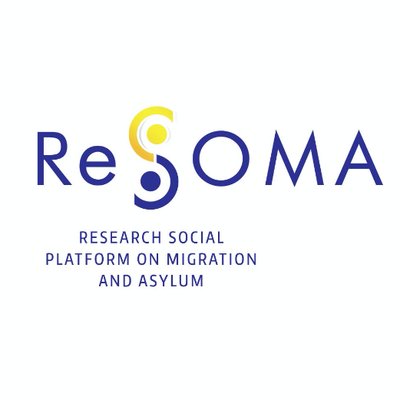ReSOMA – Research Social Platform on Migration and Asylum

We are very excited to be part of a new Horizon2020 project: ReSOMA – the Research SOcial Platform on Migration and Asylum.
ReSOMA aims at creating a platform for exchange of knowledge, expertise and practice to ensure European policy- and decision-makers and other stakeholders have access to accurate and reliable data and policy evidence. The two-year project serves three main purposes:
1. Establishing and enhancing collaboration between researchers, practitioners and other stakeholders.
2. Making the policy dialogue more evidence based.
3. Raising new priorities for the EU policy agenda.
For that, the project consists of four steps, which will be repeated twice – in 2018 and in 2019:
1. Setting the policy agenda by identifying the most pressing needs relating to migration, asylum and integration.
2. Outlining the most effective policy responses by pooling together stakeholders’ experience and scholarly evidence of experts, with a view to designing evidence-based policy options.
3. Challenging perceived policy dilemmas and offering alternatives by questioning existing policy patterns in order to turn policy options into viable alternatives for policy-makers.
4. Informing the political and public debate by communicating on the activities carried out and disseminating ReSOMA’s results to wider audiences.
For the project a great mix of think-tanks, universities and civil society organisations have partnered up – alongside Social Platform other consortium partners are Fondazione ISMU, Ernst & Young, Migration Policy Group, Erasmus University Rotterdam, Eurocities, European Council on Refugees and Exiles, Centre for European Policy Studies, and our member Platform for International Cooperation on Undocumented Migrants (PICUM).
Throughout the next two years I will work closely with Social Platform members to ensure their expertise and experiences from working in European Member States and at grassroots level are fully taken into account to inform the project’s outputs. If you want to learn more about the project, please do not hesitate to contact me, visit the newly created website, which will be updated with information constantly, and follow the project on Twitter!













































